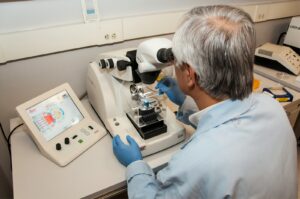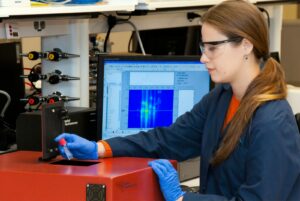The Role of IoT Integration in Revolutionizing Clinical Trials
IoT Integration in Clinical Trials: A Step Towards Greater Efficiency
IoT integration in clinical trials is emerging as a powerful tool to enhance the efficiency and accuracy of research processes. The healthcare industry is increasingly leveraging Internet of Things (IoT) technology to collect and manage data, and nowhere is this more evident than in the realm of clinical trials. By integrating IoT with electronic data capture (EDC) systems, researchers can streamline the data collection process, reduce errors, and ultimately bring new treatments to market more quickly. This approach is particularly relevant in regions like Saudi Arabia and the UAE, where there is a growing focus on innovation in healthcare and medical research.
Clinical trials are inherently complex, involving multiple stakeholders, vast amounts of data, and stringent regulatory requirements. Traditional methods of data collection are often time-consuming and prone to errors, which can delay the development of new treatments. IoT integration offers a solution to these challenges by enabling real-time data capture and remote monitoring of trial participants. For example, wearable devices can continuously monitor patients’ vital signs and transmit this data directly to EDC systems, ensuring that researchers have access to accurate and up-to-date information without the need for manual data entry.
In the context of the GCC region, where the healthcare landscape is rapidly evolving, the adoption of IoT technology in clinical trials can significantly accelerate the pace of medical research. With governments in Saudi Arabia and the UAE investing heavily in healthcare innovation, there is a strong incentive to explore how IoT can improve the efficiency and accuracy of clinical trials. By reducing the time and cost associated with data collection, IoT integration can help bring new therapies to patients faster, contributing to better health outcomes across the region.
Improving Data Accuracy and Patient Compliance through IoT
The integration of IoT technology in clinical trials also plays a crucial role in improving data accuracy and patient compliance. In traditional clinical trials, data is often collected manually, leading to potential errors and inconsistencies. Moreover, ensuring patient compliance with study protocols can be challenging, especially when participants are required to make regular visits to clinical sites. IoT devices, such as smart sensors and connected wearables, offer a solution by automating data collection and providing real-time feedback to both patients and researchers.
For instance, wearable devices can monitor medication adherence by tracking when a patient takes their prescribed treatment. This data is automatically recorded and transmitted to the trial’s EDC system, allowing researchers to monitor compliance without relying on self-reported data, which can be inaccurate. Additionally, IoT devices can remind patients to take their medication or attend appointments, further improving compliance rates. In regions like the UAE and Saudi Arabia, where the healthcare system is becoming increasingly digitized, the use of IoT in clinical trials can enhance the reliability of data and ensure that studies are conducted efficiently and accurately.
Moreover, IoT integration enables remote monitoring of patients, reducing the need for frequent visits to clinical sites. This is particularly beneficial in large and diverse geographical areas, such as those in Saudi Arabia and the UAE, where access to healthcare facilities may vary. By allowing patients to participate in clinical trials from the comfort of their homes, IoT technology makes it easier to recruit and retain participants, thereby improving the overall success of the trial. This remote capability also allows researchers to collect data more consistently, leading to more robust and reliable results.
The Future of Clinical Trials: Leveraging IoT for Better Outcomes
As the healthcare industry continues to evolve, the future of IoT integration in clinical trials looks promising. The ability to capture real-time data and remotely monitor patients opens up new possibilities for conducting clinical research more effectively and efficiently. With advancements in IoT technology, such as the development of more sophisticated sensors and improved data analytics capabilities, the potential for innovation in clinical trials is vast. In the GCC region, where there is a strong emphasis on healthcare modernization, IoT integration is poised to become a key component of future clinical trials.
One of the most exciting prospects for the future is the use of IoT in adaptive clinical trials. Adaptive trials are designed to be more flexible, allowing researchers to modify the study protocol in response to real-time data. IoT technology can facilitate this by providing continuous data streams that enable researchers to make informed decisions throughout the trial. This adaptability can lead to more efficient trials, as researchers can quickly identify and address any issues that arise, ultimately speeding up the development of new treatments.
Another area where IoT integration can have a significant impact is in patient recruitment and retention. By leveraging IoT devices, researchers can reach a broader and more diverse population of participants, including those in remote or underserved areas. This is particularly relevant in the Middle East, where there may be logistical challenges in accessing healthcare facilities. IoT technology can help overcome these barriers by enabling patients to participate in trials without the need for frequent travel, making it easier to recruit and retain participants and ensuring that trials are more representative of the general population.
The Challenges and Opportunities of IoT Integration in Clinical Trials
Addressing Data Privacy and Security Concerns
While the benefits of IoT integration in clinical trials are clear, there are also challenges that need to be addressed, particularly regarding data privacy and security. The use of IoT devices in clinical trials involves the collection and transmission of sensitive health data, which must be protected to ensure patient confidentiality. In regions like Saudi Arabia and the UAE, where data privacy regulations are becoming increasingly stringent, ensuring the security of IoT data is paramount.
To address these concerns, healthcare organizations must implement robust cybersecurity measures, including encryption and secure data storage solutions. Additionally, there should be clear protocols in place for handling data breaches and ensuring that patients are informed of how their data is being used. By prioritizing data security, healthcare providers can build trust with patients and encourage the wider adoption of IoT technology in clinical trials.
Moreover, there is a need for clear regulatory frameworks that govern the use of IoT in clinical trials. These frameworks should address issues such as data ownership, consent, and the ethical use of IoT devices in research. In the GCC region, where healthcare regulations are rapidly evolving, there is an opportunity to develop comprehensive guidelines that support the safe and effective use of IoT technology in clinical trials. By working closely with regulators, healthcare providers can ensure that IoT integration enhances clinical research without compromising patient safety or data privacy.
Leveraging IoT for Continuous Innovation in Clinical Trials
The integration of IoT technology in clinical trials represents a significant opportunity for continuous innovation in the field of medical research. By embracing IoT, healthcare providers can streamline the research process, reduce costs, and improve the accuracy of data collection. As the technology continues to evolve, there will be new opportunities to enhance clinical trials further, such as the use of artificial intelligence to analyze IoT data or the development of more advanced IoT devices tailored to specific therapeutic areas.
In the context of the Middle East, where there is a strong focus on healthcare innovation, the adoption of IoT in clinical trials is likely to accelerate. Governments in the region are investing in digital healthcare initiatives, creating a favorable environment for the integration of IoT technology. By staying at the forefront of this trend, healthcare providers in Saudi Arabia and the UAE can lead the way in the development of more efficient and effective clinical trials.
In conclusion, the integration of IoT technology with electronic data capture systems offers significant potential to improve the efficiency and accuracy of clinical trials. While there are challenges to address, particularly regarding data privacy and security, the opportunities for innovation are vast. By embracing IoT integration, healthcare providers can enhance the quality of clinical trials, ultimately leading to better health outcomes for patients. As the technology continues to evolve, IoT is set to play an increasingly important role in the future of clinical research.
#IoT #HealthcareInnovation #ClinicalTrials #ResearchTechnology #PatientCare #IoTSolutions #MiddleEastHealthcare













